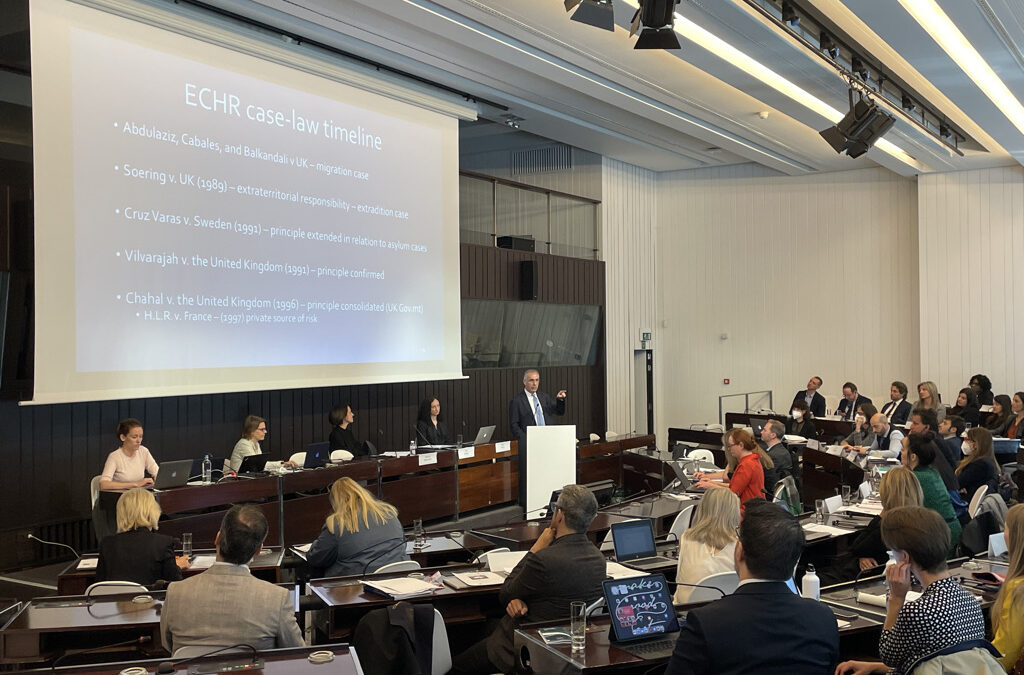
Jun 3, 2022 | Events, News
On Wednesday 15th June 2022, from 11:00 to 12:15 CET, the International Commission of Jurists (ICJ) will hold a webinar on the need for the EU to safeguard migrant children’s human rights, and the scope for alternatives to detention foreseen in the EU Pact on Asylum and Migration.

May 4, 2022 | Agendas, Events, News
During the International Roundtable on the Rights of Migrants and Refugees in the European Union, held by the International Commission of Jurists (ICJ) and its partner organizations Immigration Council of Ireland, Scuola Superiore Sant’Anna, the Greek Council for Refugees and Forum for Human Rights, judges, lawyers, experts and NGO representatives from Italy, Greece, the Czech Republic and Ireland came together to discuss the challenges involved in safeguarding the rights of migrants and refugees in the EU.

Apr 22, 2022 | News
In a briefing paper published today, the ICJ called on the European Union and its Member States to put an end to the criminalization of humanitarian assistance to migrants, by redefining the crime of smuggling of migrants to exclude humanitarian assistance, and by refraining from prosecuting those providing humanitarian assistance and other support.

Apr 21, 2022 | Events, News
On Wednesday 27 April 2022, the International Commission of Jurists (ICJ) will hold the Final Event of the FAIR PLUS Project, from 14:00 to 15:30, in Brussels and online.

Dec 9, 2021 | News
Protection of the human rights of children in conflict with the law should be at the heart of the individual assessment process required by EU law, the International Commission of Jurists and Forum for Human Rights said today.









